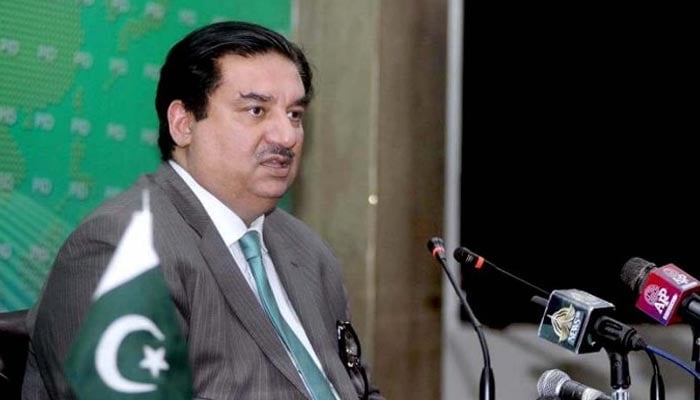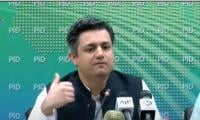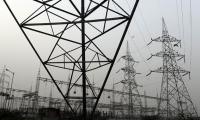Govt increases power tariff with immediate effect
The cabinet has issued directives to ensure protection of poor consumers from the impact
ISLAMABAD: The Federal Minister for Power Engineer Khurram Dastagir Khan on Tuesday said that the federal cabinet has decided to increase electricity rates by Rs3.50 per unit with immediate effect. The cabinet has also issued special directives to the Ministry of Power for protecting poor consumers from its impact.
Speaking to the media during a press conference alongside Minister of State for Petroleum Dr Musadik Malik, Khan said that a Rs3.50 per unit hike in the tariff would be imposed from July 26, while another Rs3.50 per unit increase would be implemented from the next month and a further increase of 90 paisas from October.
Khan said that the first three months would be difficult for the consumers but the power prices would start decreasing from November after reflection of the fuel surcharge in the tariff.
“The hike would have no such impact on the consumers as the increase had already been reflected in the monthly bills on account of fuel prices adjustment,” he added.
The Minister further shared that the cabinet also decided to provide a smooth and uninterrupted power supply round the clock to the dedicated industrial feeders to protect the livelihoods of the people.
Similarly, minimum load management would be carried out on mix-industrial feeders and provision of both gas and electricity would be ensured on a priority basis to five major export sectors at reduced rates. An announcement to this effect would be made soon, he added.
Minister of State for Petroleum Dr Musadik Malik expressed confidence that the electricity price would start coming down from October-November due to effective policies of the government.
From day one, he said, the incumbent coalition government had been saying that the fruits of its prudent policies would come to nutrition after almost 4-6 years.
Based on the good performance and decision of the government, he said, “there will be a visible gradual reduction in the electricity price, hop in the coming 3-4 months.”
Explaining the phenomenon of "rebasing", Minister Malik said, it implied the basic production cost of electricity included the fuel rate, losses, and other expenses faced in transmitting power to consumers.
“There are two basic components of the rebasing (revised tariff] i.e. production and transmission cost,” he shared.
As per the law, he said, the revision was a regular process, but the PTI government after February 2021 did not carry out the rebasing. “Non-rebasing does not mean that you (consumers) did not pay the price. Rebasing means to just make an announcement, as the current government has done today (instead of using fuel adjustment tool),” he said.
Musadik Malik said the previous government was in the practice of non-announcement of the rebasing but continued increasing the price on account of fuel adjustment and quarter tariff adjustment in electricity bills.
-
Security forces gun down 30 terrorists in multiple IBOs in KP: ISPR
-
MQM-P calls for new province in Sindh
-
US report validates Pakistan military edge over India: PM
-
Banned TTP poses serious threat to Pakistan security: UNSC panel
-
CM Afridi clarifies remarks on by-poll after ECP requests army deployment
-
Dubai sees 3.2m Pakistani passengers in 2025 as airport sets new milestone
-
Security forces kill 23 Indian proxy terrorists in KP's Kurram
-
Pakistan to construct island to boost oil exploration: report














